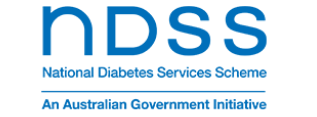The Diabetes in Schools program provides free, online training for teachers and school staff to better understand how they can support students with type 1 diabetes while at school.
Principals, teachers and school staff can access information and support through online video-based modules and hands-on training to help students with type 1 diabetes thrive at school.
Create a Diabetes in Schools account to access the training.
What level of training do you need?
Level 1 – Introductory training
Recommended for all school staff to:
- understand what type 1 diabetes is and how it affects students
- recognise signs of low or high blood glucose (hypo/hyper)
- know when and how to support a student who needs help
- reduce stigma and uphold legal duty of care
- understand that every student will have a Diabetes Management Plan (DMP).
Level 2 – Intermediate training
For designated staff identified by the principal to support students during school and school related events (e.g. camps, excursions, sports). Depending on the student’s needs, designated staff may:
- monitor blood glucose levels
- help with or administer insulin
- respond to high or low blood glucose events.
Designated staff need a deeper understanding of type 1 diabetes to provide day-to-day support, and their role is guided by the student’s diabetes management and action plans.
Level 3 – Individualised skills training
For designated staff (as nominated by the principal) who are supporting a student who is newly diagnosed, unable to self administer insulin or requires support to manage their diabetes whilst at school. This hands-on training focuses on the individual student’s diabetes management and is delivered face-to-face by a health professional.
School camp training is a part of Level 3 training, however, it must be specifically requested by a school principal or authorised school contact when submitting a Level 3 training request.
Training you receive at each level
-
Level 1 - Introductory Training
Level 1 training is designed for all school staff and provides basic information about students living with type 1 diabetes. Level 1 training includes 3 online modules each consisting of an educational and interactive video, downloadable resources, plus learning questions and activities that each person needs to complete:
- Module 1: Diabetes 101 – Provides a basic overview of what is type 1 diabetes and how it is managed.
- Module 2: Low and highs (first aid) – Explains the signs and symptoms of hypoglycaemia and hyperglycaemia (lows and highs) and how to respond in an emergency.
- Module 3: Roles and responsibilities – Explains the roles and responsibilities of school staff in supporting and managing students with type 1 diabetes.
Level 1 training takes approximately 20-30 minutes to complete, and you will be provided with a certificate at the end.
-
Level 2 - Intermediate Training
Level 2 training is designed for staff who do supervise or teach a student with type 1 diabetes. The online training includes nine modules each consisting of an educational and interactive video, downloadable resources, plus learning questions and activities that each person needs to complete.
- Module 1: Supporting a student with type 1 diabetes – Describes how diabetes management will differ for each student with type 1 diabetes.
- Module 2: Food and diabetes – Explains the role of carbohydrate food and its impact on a student living with diabetes, and what schools can do to help a student with their food requirements.
- Module 3: Monitoring glucose levels – Monitoring glucose is an essential tool in managing type 1 diabetes.
- Module 4: Insulin – Understanding the different modes of delivery and making reasonable adjustments to a student’s routine.
- Module 5: Low glucose levels – Understanding the impact of a low and how actions plans help to treat a hypoglycaemia glucose level.
- Module 6: High glucose levels – Understanding the impact of a high and how actions plans help to treat a hyperglycaemia glucose level.
- Module 7: Physical activity – How physical activity impacts a student’s glucose levels and making reasonable adjustments to support students participating in physical activity.
- Module 8: Planning for camp – Understanding the importance of pre-camp planning and implementing a detailed camp plan.
- Module 9: Planning for change and communication – Identifying when changes in communication or support are required and awareness of the importance of communication strategies between all stakeholders.
Level 2 training takes approximately 1 – 1.5 hours to complete, and you will be provided with a certificate at the end. Your certificate expires after 12 months.
-
Level 3 - Individualised Skills Training
Level 3 training is a practical training program for designated school staff that focuses on the individual student’s diabetes management. This training is hands on and delivered face-to-face by a qualified healthcare professional (where appropriate the student’s healthcare team). Training will be prioritised for students who are newly diagnosed, unable to self-administer insulin, requires support to manage their diabetes or experiences a significant transition or change in their diabetes management (e.g. starting insulin pump) or is moving school or preparing for school camp.
School camp training is a part of Level 3 training, however, it must be specifically requested by a school principal or authorised school contact when submitting a Level 3 training request.
Level 3 training takes 2-3 hours to complete per student. A minimum of 2 and up to 8 key staff can attend the training. Each participant will be provided with a certificate at the end of Level 3.
For more information about this level of training, you can contact a member of the Diabetes in Schools team.
It is recommended that:
- all school staff complete Level 1 training so that they have a basic understanding of type 1 diabetes and how it impacts students
- all school staff are familiar with the actions that they must take when students with type 1 diabetes require urgent or emergency assistance due to their health condition
- staff are aware of the designated staff in the school who are responsible for providing specific assistance to students with type 1 diabetes and can administer insulin when necessary
- principals ensure that an appropriate number of designated staff, relative to the size of the school and the number of students with type 1 diabetes, undertake Level 2 training to have the knowledge and skills to assist with supporting students with type 1 diabetes
- level 3 individualised (face-to-face) training is appropriate for designated school staff (2–8) who are supporting a student who is newly diagnosed, unable to self-administer insulin, requires support to manage their diabetes at school, preparing for camp, or the student experiences a significant transition or change in their diabetes management (e.g. starting insulin pump therapy).

The program does not result in accreditation. It is designed to give nationally consistent information and tools to parents, families, principals, school staff and health professionals to assist with the support and management of students with type 1 diabetes. The program does not provide recipients with an accreditation (nor is it designed or intended to do so). The program is to not be otherwise interpreted as more than a valuable opportunity to learn how to better assist with the support and management of students with type 1 diabetes.

More information and support
Managing type 1 diabetes is a 24/7 job. It impacts everything a child does from what they eat, to the sport they play, to excursions and camps.
Type 1 diabetes can place families under significant stress as they do everything they can to keep their child safe and healthy – especially when they go to school.
It can also be challenging for teachers and school staff to know how they can best support a student with type 1 diabetes and their family.
The Diabetes in Schools website provides information, checklists, how-to guides and expert insights to help guide and inform parents or carers, school staff, principals and health professionals.
Tell a school
A parent, carer or a health professional can tell a school about the Diabetes in Schools program by submitting an online referral form. Once the form has been submitted, a member of the Diabetes in Schools team will follow up with the principal to offer them any further support they need to register their school and take full advantage of the free training program.

OUR PARTNERS
Diabetes in Schools was launched in 2020 and is regularly reviewed.
The program was developed by Diabetes Australia with support from the Australian Government, the Australian Diabetes Educators Association, the Australian Diabetes Society, the Australia and New Zealand Society for Paediatric Endocrinology and Diabetes and Breakthrough T1D.





Last updated: September 2025


